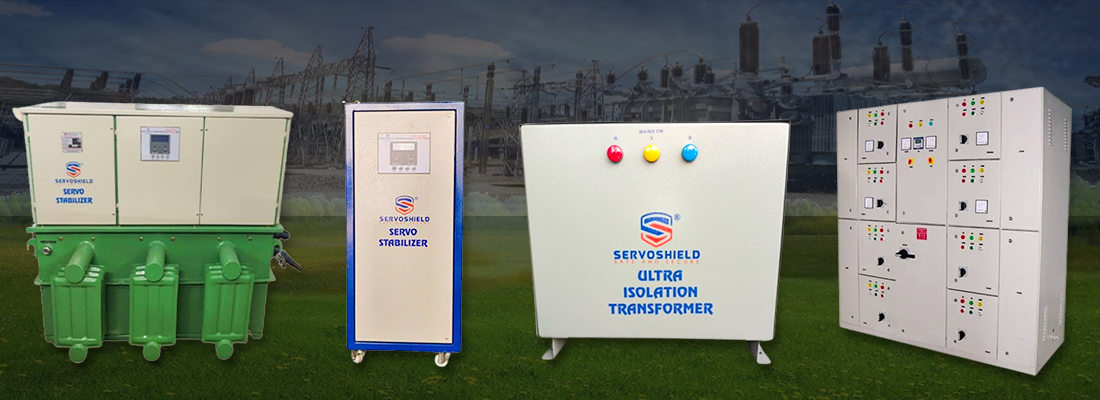In today's fast-paced industrial landscape, maintaining a stable and high-quality power supply is crucial for both operational efficiency and equipment longevity. Manufacturers specializing in electrical equipment like , servo stabilizers (1PH Servo Voltage Stabilizer, 3PH Servo Voltage Stabilizer AIR COOLED, 3PH Servo Voltage Stabilizer OIL COOLED), insulation transformers (1PH Isolation Transformer, 3PH Isolation Transformer), power conditioners (1PH Servo Stabilizer with Isolation Transformer, 3PH Servo Stabilizer with Isolation Transformer) and control transformers(1PH Control Transformer) play a pivotal role in achieving this goal. In this article, we will delve into each of these electrical components, their functions, and their significance in various applications.
Servo Stabilizers
Definition and Functionality : Servo stabilizers are sophisticated devices designed to ensure that the output voltage remains constant, regardless of fluctuations in the input voltage. They use a servo motor mechanism to adjust the transformer’s tap settings in real-time, thus stabilizing the voltage supplied to sensitive equipment.
Applications and Benefits
Servo stabilizers are widely used in industries such as manufacturing, pharmaceuticals, and IT, where precision power supply is critical. They help protect equipment from damage caused by voltage spikes or drops, thereby reducing downtime and repair costs. With energy efficiency in mind, modern servo stabilizers are designed to minimize energy loss, contributing to overall cost savings.
Insulation Transformers
Definition and Functionality : Insulation transformers, also known as isolation transformers, serve the vital purpose of isolating electrical equipment from the power supply. They prevent direct electrical connections between the power source and the connected load, thereby enhancing safety.
Applications and Benefits
These transformers are commonly used in medical facilities, research labs, and high-precision manufacturing processes. The main benefits of insulation transformers include improved personnel safety, reduction in electrical noise, and enhanced equipment protection. By providing a stable and isolated electrical environment, they also facilitate the operation of sensitive instruments.
Power Conditioners
Definition and Functionality : Power conditioners are devices designed to provide a clean and stable power supply by filtering out electrical noise, voltage sags, surges, and spikes. They not only enhance the quality of power supplied to equipment but also protect against transient voltages.
Applications and Benefits
In sectors such as telecommunications, data centers, and broadcasting, power conditioners are crucial for maintaining uninterrupted operations. They help in extending the life of electronic devices and ensuring optimal performance. With features like surge protection and harmonic filtering, modern power conditioners play a significant role in improving overall system reliability and safety.
Control Transformers
Definition and Functionality : Control transformers are specifically designed to step down the voltage for control circuits. They maintain a constant voltage output, even when load conditions change, ensuring that control systems operate effectively.
Applications and Benefits
These transformers are integral to industrial automation systems, HVAC systems, and various electrical control applications. By ensuring stable voltage for control circuits, they bolster the performance of relays, timers, and other devices. Control transformers also contribute to the safe operation of electrical machinery, reducing the likelihood of faults and failures.
The Role of Manufacturers
Manufacturers of servo stabilizers, insulation transformers, power conditioners, and control transformers are critical players in the electrical equipment industry. They not only provide essential solutions for power management but also contribute to the safety and efficiency of numerous applications.
With advancements in technology, these manufacturers continue to innovate, producing more efficient and reliable products that meet the evolving needs of industries. As organizations strive for sustainability and energy efficiency, the role of these electrical devices will only continue to grow, underscoring the importance of selecting the right manufacturer and equipment for specific applications.
By understanding the functionalities and advantages of these essential electrical components, businesses can make informed decisions that enhance operational efficiency and protect their investments.


